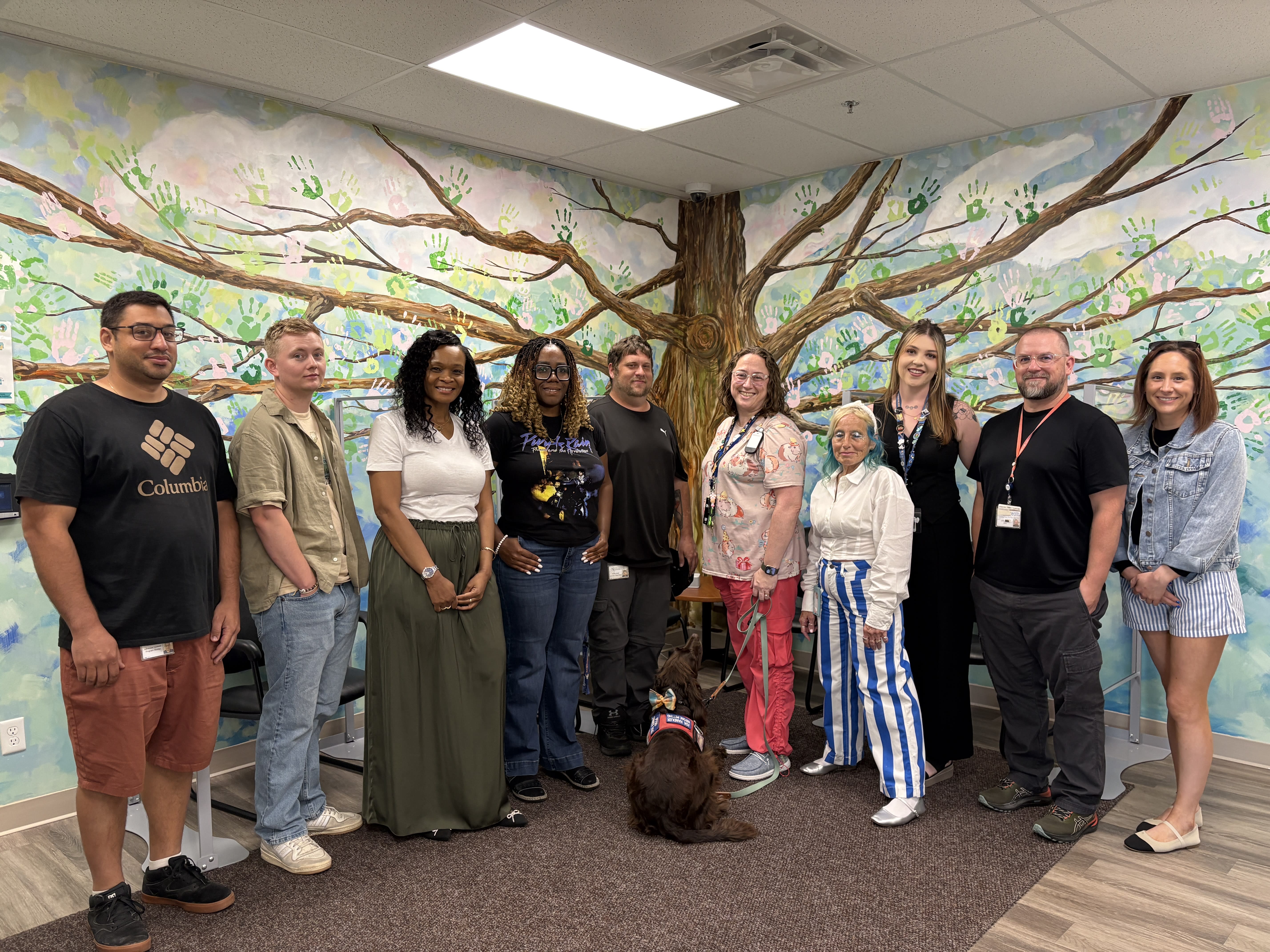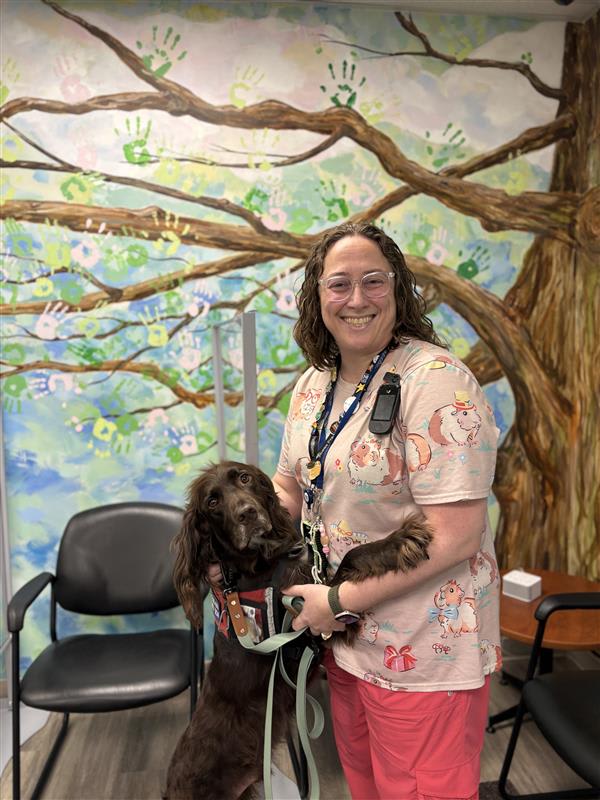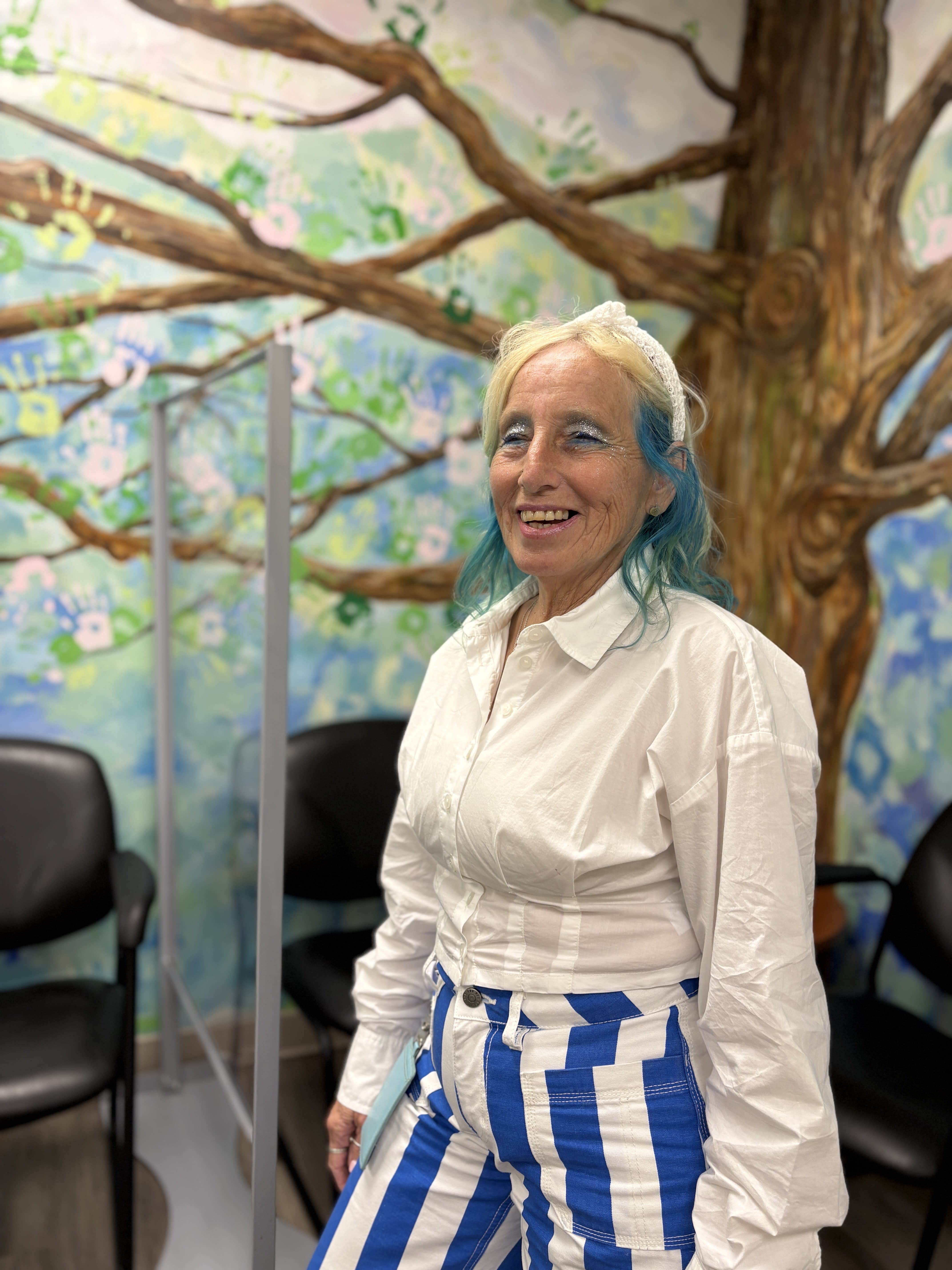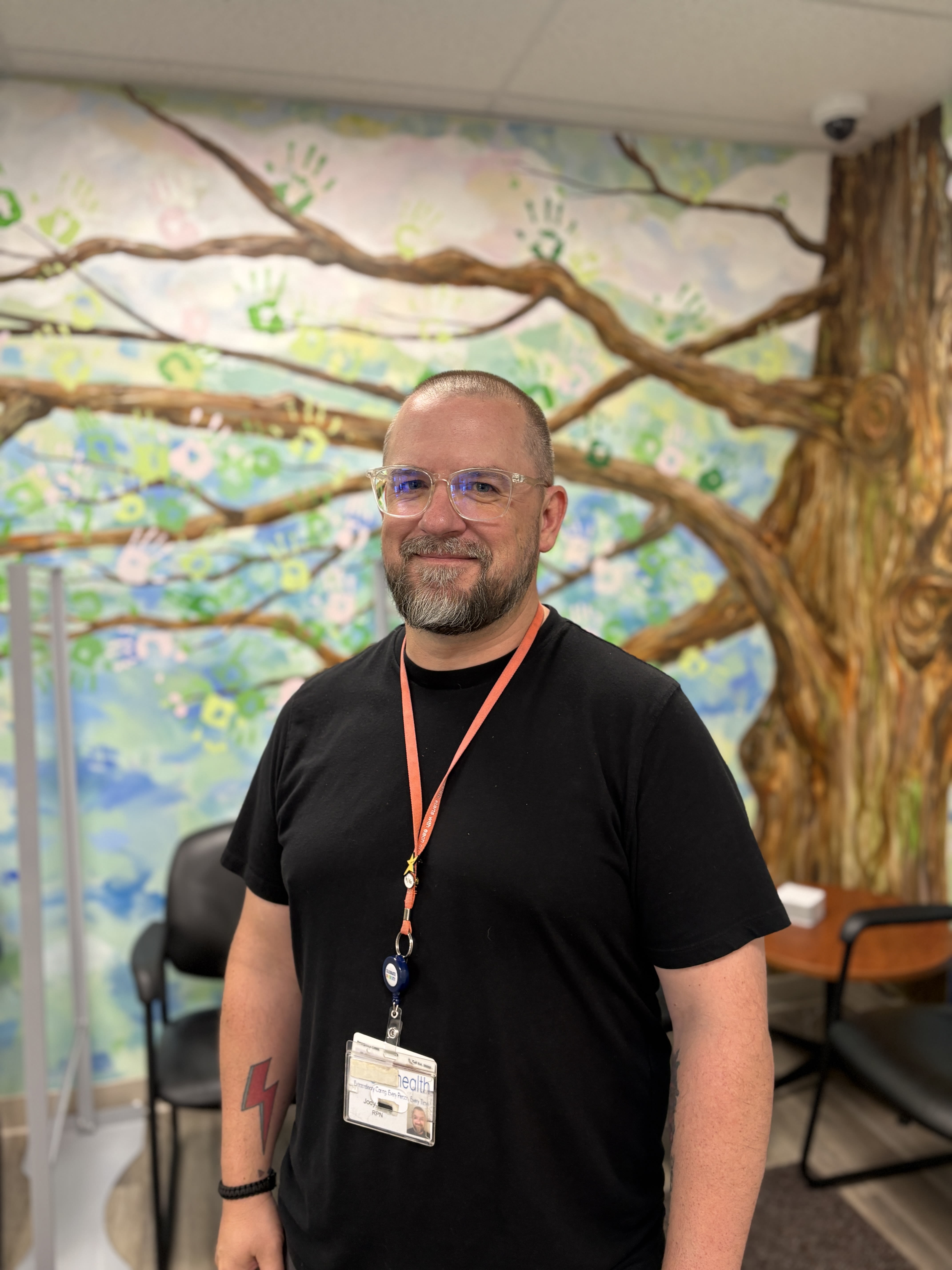
Staff from Niagara Health’s Withdrawal Management Services gathered to mark 50 years of providing compassionate care to individuals on their recovery journey.
For 50 years, Niagara Health’s Withdrawal Management Services (WMS) program has served as a safe entry point for people seeking help with substance use — and it’s the team behind the program who make that possible.
“This is a legacy built by countless individuals who believe in our mission to provide low-barrier access and person-focused addiction services to a highly marginalized population,” says Kayleigh Tyrer, Interim Manager of Clinical Services. “Fifty years represents decades of dedication and shared purpose.”
WMS first opened its doors at 10 Adams Street, not far from the old St. Catharines General Hospital. Some of today’s staff still remember the original site — a few even started their careers there.
While the location and landscape of addiction care have evolved, the program remains grounded in dignity, respect and support.
Addictions care has grown more complex, with clients often facing a combination of mental health concerns, chronic physical conditions and unstable housing. WMS has adapted by integrating medical and social services, offering not only a safe space to detox but also a bridge to long-term recovery.
“The team is the heart of the program,” says Tyrer. “Many staff have walked similar paths to the people we support, which helps them connect on a level that’s both authentic and therapeutic.”
Meet a few of the team members:
Becky Park, Nurse Practitioner
Park joined WMS after filling in temporarily for a colleague, and never left.
“My entire career, I’ve been called to work with vulnerable populations, to be a voice and an advocate,” she says. “Looking someone in the eye and saying, ‘I’m proud of you for taking the first step’ — that’s a powerful thing.”
Park has seen WMS shift from a socially focused model to one that integrates robust medical care, including anti-craving medications and opiate replacement therapy. Still, the approach remains grounded in empathy.
“People come in scared, in crisis and in pain — they deserve to be treated like human beings with a chronic illness, because that’s what addiction is,” she says.


Marla Manning, Program Worker
Manning has been with the program for nearly three decades. For her, the reward lies in the small moments — a smile, a nod and a look of hope.
“Seeing the light in someone’s eyes when they get their first 24-hours chip or telling them it’s going to get better, and then watching it actually get better — that’s everything,” she says.
Manning knew early on she wanted to work in addictions care. She says the job has shaped her as much as she’s helped shape the role.
“You never know what people are battling within,” she says. “But we all put our pants on the same way. You have to treat everyone with kindness.”
Ash Shihora, Program Worker
Newer to the team, Shihora joined WMS in 2025 after a career in pharmacy and personal experience with recovery.
“I was a client at the men’s detox on Adams Street,” he says. “The staff were non-judgmental and showed me care I couldn’t show myself. It saved my life.”
That lived experience now informs his work, whether it’s offering encouragement at 2 a.m. or walking a client through the intake process. “My job is to walk with them — not lead or push — and remind them they are the expert in their own life.”


Jody Nolan, Registered Practical Nurse
Nolan calls WMS a place of, “different kinds of wound care.”
“Addiction isn’t something you can just bandage,” he says. “Sometimes the only way to dress those wounds is with emotional support.”
Nolan didn’t expect to find his calling in addictions, but he stayed because of the impact. “We see triumphs and set-backs. When you’re lucky enough to be a part of someone’s triumph — that’s worth everything.”
The WMS team works together closely, often across disciplines, to create a supportive environment that fosters healing and reduces stigma. For many clients, just being treated with basic human kindness can be transformational.
“I can't tell you how often I hear, ‘Thank you for treating me like a human being,’” Nolan says. “Not for exceptional care — just for being kind.”
As WMS enters its next chapter, the team is focused on expanding integrated, trauma-informed care and continuing to be a safe, steady presence in the lives of those navigating recovery.
“This is more than a program,” Tyrer says. “It’s a lifeline. And behind that lifeline are the faces of people who truly care.”

